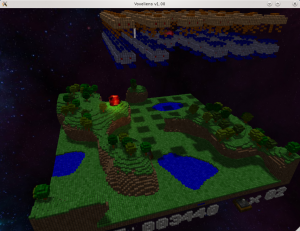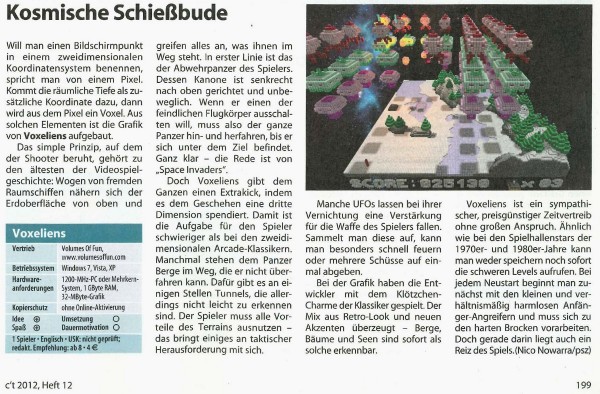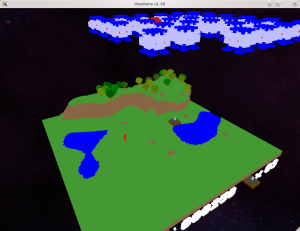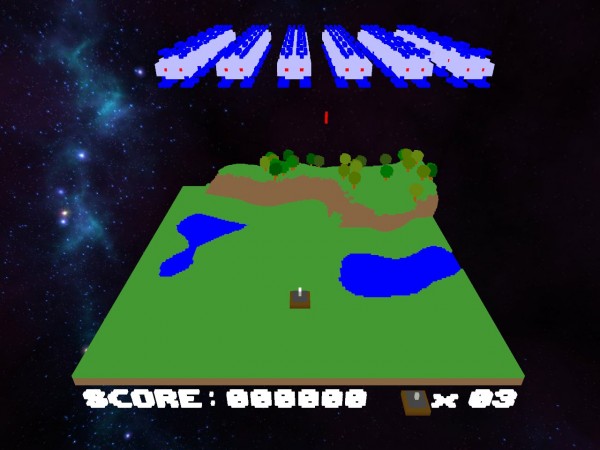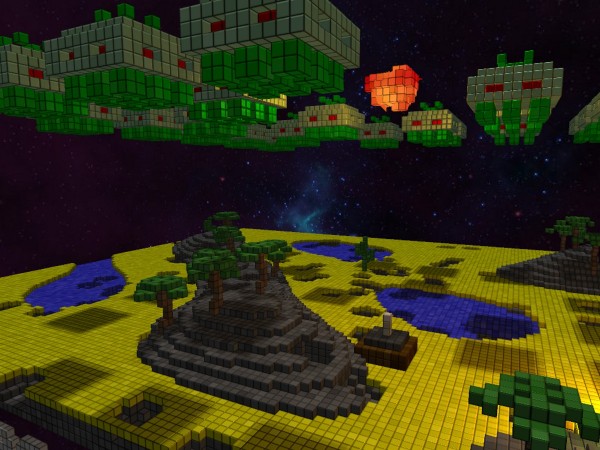We’ve been hard at work on Voxeliens for about a year now, and since starting this blog it’s almost all we’ve been talking about. Our PolyVox library has basically been on the back-burner, but with development on Voxeliens very nearly complete, we are starting to get time to work on it again.
Readers not familiar with PolyVox should have a read of this page, but in a nutshell it is the voxel engine which underpins Voxeliens. It’s firmly aimed at programmers rather than gamers, and has had some success in being used for a number of different projects (link). In the future we’d like to use this blog to talk about our technology as well as our games, and I’m going to kick that off with a quick discussion of what’s coming next for PolyVox.
- One idea we have been working on is to separate the properties of a voxel from the algorithm. Voxels are no longer required to have a ‘getDensity()’ and/or ‘getMaterial()’ functions, and can instead provide whatever properties they wish (or none at all, as primitive types can now be used as voxels). Algorithms can then make use of function objects which explain how a particular voxel type should be interpreted. This is similar in concept to how the std::sort function takes a comparison object to define how types are sorted.
- The same concept can be applied at a higher level. For example, the Cubic SurfaceExtractor used to use getMaterial() to determine when to generate quads for the output mesh. In the new version the user instead provides an ‘IsQuadNeeded()’ function object which is called for pairs of voxels. Instead of just using material, the user’s implementation of this function could also consider the transparency of the voxels when generating the mesh.
- Meanwhile, Matt has started reviving the SWIG bindings, and there is some chance we will be making use of these ourselves in the future (which will provide some incentive for us to keep them in working order). He’s also started setting up nightly tests for them so hopefully we can notice more quickly if something breaks.
- Lastly, we want to try and add some polish to the next release. This means introducing real version numbers rather than just snapshots, creating a branch in Git for the release, removing/fixing some broken stuff, and getting some documentation written.
These changes might not seem too revolutionary, but this is because we’ve mostly been focused on Voxeliens. Hopefully we can lay the groundwork for future developments and get PolyVox into a position where we can accept contributions from members of our community. After all this work on game development we’re quite looking forward to getting back to the technology 🙂


